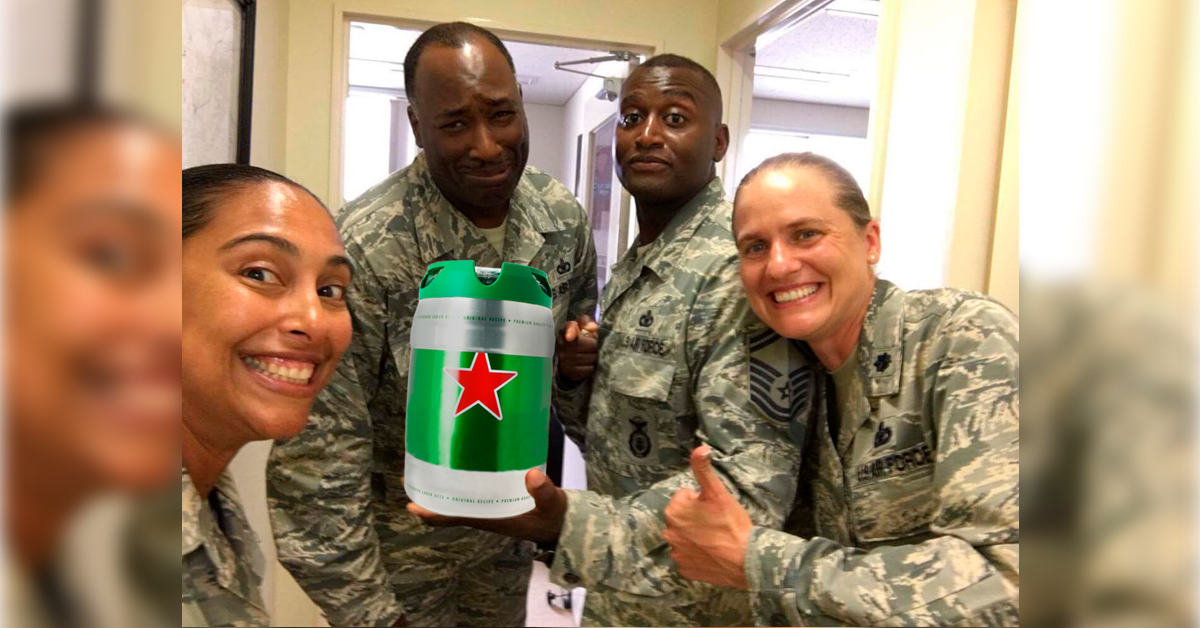The U.S. Army Research Institute of Environmental Medicine is seeking military and civilian volunteers for nutritional studies in 2021. Participants must be willing to travel to USARIEM’s laboratory at the Natick Soldier Systems Center in Natick, Massachusetts. The Army’s announcement of the studies noted that, “Some of these studies will involve eating a military ration-based diet, which includes Meals, Ready-to-Eat, or MREs, for certain periods of time.”

USARIEM hopes to use new knowledge of the digestive and immune systems can improve future MREs and nutritional guidance for soldiers. “The overarching goal of this work is to improve performance on the battlefield and help protect troops from illness,” the Army said. In order to conduct this research, volunteers are being sought for different studies with different requirements. If your colon is feeling up to the challenge, here they are.
1. Ketone supplement and exercise study
This study is looking for men and women, ages 18 to 39, to drink a ketone ester supplement before exercising. The goal is to determine if the supplement changes how the body uses carbs, fat, and protein, and if it improves lower body power and endurance. Participants must be physically active (two to four days of weekly aerobic or resistance exercise) and willing to stop all use of dietary supplements, alcohol, and tobacco during the three to four-week study. Testing will include body composition measurements, blood draws, non-radioactive stable isotope infusions, treadmill and stationary bike workouts, and a controlled diet including the ketone ester supplement. Compensation is “up to $540 for completing the study.”
2. Study on gut health and immune function at high altitude
This study focuses on how nutritional supplement affects gastrointestinal, brain, and immune function at high altitude. USARIEM is looking for men and women between the ages of 18 and 39 who exercise at least three days a week and have a BMI less than or equal to 30 to participate. Participants cannot have any gastrointestinal diseases or problems. The study will include one to five labs visits per week over the course of 10 weeks, three 40-hour stays in an altitude chamber, eating a nutritional supplement (14 consecutive days, three times during the study) and provided diet (nine consecutive days, three times during the study), exercise and cognitive testing, and blood, tear, saliva, urine and fecal sample collection. For your literal blood, sweat and tears, USARIEM will compensate civilians up to $1300 and military and federal civilians up to $600.
3. Protein, exercise and muscle health study
This study is seeking men and women ages 18 to 35 who do aerobic or body weight exercise at least twice a week for the past six months. Researchers are studying the the effects of drinking a protein beverage on the body’s ability to build muscle during calorie deprivation. Over the course of 37 days, participants will drink a protein beverage and eat a, “strictly controlled study diets comprised of military rations and commercially available foods.” The study will include blood and urine collection, muscle biopsies, and non-radioactive stable isotope infusions. Compensation for participants is up to $1147.50.
4. Body composition and immune function study

This one’s a doozy. Participants be men or women between the ages of 18 (17 if military) and 39, have a BMI between 18.5 and 25 or greater than or equal to 30, and have not lost more than five pounds in the last two months and maintain weight throughout the study. Female participants must have a normal menstrual cycle between 26 and 32 days in duration, five menstrual cycles within the past six months, or be able to provide documentation of oral or hormonal contraceptive use that contains low-dose estrogen or progesterone to maintain continuous levels throughout the 28-day cycle. The study will include pre-study sleep monitoring, 120 to 300 minutes of aerobic exercise three days per week, diet questionnaires and monitoring, blood draws and eight topical blisters on the forearms. Civilians are eligible for up to $560 in compensation while military and federal civilians are eligible for up to $100. At least this one doesn’t have you eating MREs.
If any of that actually interests you, the point of contact for the studies is the USARIEM Public Affairs Office at usarmy.natick.medcom-usariem.mbx.usariem-webmaster@mail.mil.


























